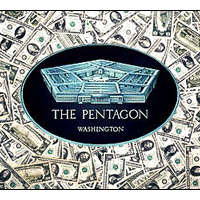Obama Rewards Weapons Makers by Easing Restrictions on Arms Exports
 (graphic-BRussellstribunal.org)
(graphic-BRussellstribunal.org)
The Obama administration has given U.S. arms manufacturers a big gift in loosening federal export controls—the result of which could mean more American-made weapons and equipment fueling conflicts around the world.
Until now, the State Department and the Department of Commerce have tussled with equal footing over what military-use goods could be exported by U.S. companies. This arrangement pitted Commerce, whose mission is to help American businesses expand sales and opportunities, against State and its efforts to promote peace.
But as of October 15, the administration will alter the government’s export control system by putting more of the decision-making in the hands of Commerce. This change could increase the volume of American-made military parts to foreign war zones and make it more difficult to enforce arms sanctions, according to former U.S. officials and human rights advocates interviewed by ProPublica.
Now, when it comes to tens of thousands of items with military applications, Commerce will decide whether they should be sold overseas. The State Department will have no voice in those matters.
State officials will still be able to veto certain big-ticket items, like fighter jets, drones, and other systems and parts.
Smaller but not necessarily less important goods, like parts for military aircraft (propeller blades, brake pads, tires and more), will move more easily through Commerce’s “flexible” controls, critics say, and wind up in foreign arsenals.
“It’s going to be easier for these military items to flow, harder to get a heads-up on their movements, and, in theory, easier for a smuggling ring to move weapons,” William Hartung, author of a recent report on the topic for the Center for International Policy, told ProPublica.
Steven Pelak, who recently left the Department of Justice after six years overseeing investigations and prosecutions of export violations, noted that something like brake pads may seem innocent enough, unless they wind up in Iran, whose air force is in need of parts for U.S.-made jets purchased before the Islamic revolution 34 ago.
The new export rules represent “a big win for defense manufacturers, who have long lobbied in favor of relaxing U.S. export rules,” ProPublica’s Cora Currier wrote. During the past three years, big defense contractors and industry trade organizations have spent about $170 million lobbying for export control reform, among other issues.
Three of the many companies that are likely to benefit from the administration’s decision are Lockheed Martin, which makes C-130 transport planes, Textron, builder of Kiowa Warrior helicopters, and Honeywell, which outfits military choppers, according to Currier.
-Noel Brinkerhoff
To Learn More:
In Big Win for Defense Industry, Obama Rolls Back Limits on Arms Exports (by Cora Currier, ProPublica)
Obama Steps Up Foreign Weapons Sales, Overwhelming Other Arms Makers (by Noel Brinkerhoff and David Wallechinsky, AllGov)
U.S. Weapons Makers on a Record-Setting Roll (by Noel Brinkerhoff and David Wallechinsky, AllGov)
- Top Stories
- Unusual News
- Where is the Money Going?
- Controversies
- U.S. and the World
- Appointments and Resignations
- Latest News
- Trump to Stop Deportations If…
- Trump Denounces World Series
- What If China Invaded the United States?
- Donald Trump Has a Mental Health Problem and It Has a Name
- Trump Goes on Renaming Frenzy






Comments